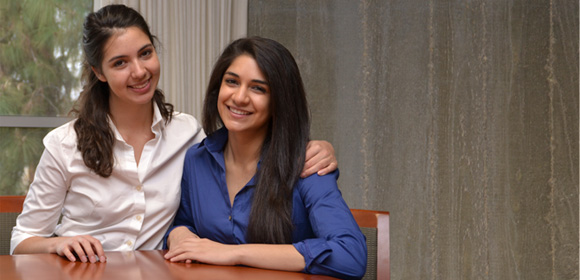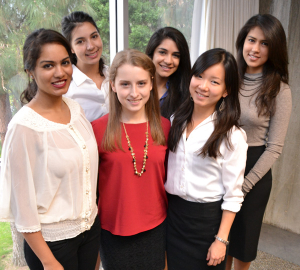
Members of the Scripps College Economics Society are determined to use their economics education to impact the community. Their interests in female entrepreneurship led them to develop a project to assist business owners in developing countries.
Last fall, the student organization raised $575 through donations from students, faculty, staff, and alumni of The Claremont Colleges to establish a loan portfolio through Kiva, a micro-financing organization.
As of February 7, 2012, the student group had made 23 micro-loans to mostly female entrepreneurs in a total of 14 countries, including Palestine, Peru, Pakistan, and Mongolia. Many of the loan recipients are farmers or retailers.
The group posts its portfolio online allowing donors to learn more about the entrepreneurs helped by the loans.
This is how it works: Kiva distributes a loan, and the economics society oversees its loan portfolio as it continues to solicit donations. These micro-loans allow entrepreneurs in developing countries to fund new business projects, which in turn, helps lessen the pressures of poverty in developing countries.
When the entrepreneur’s project reaches a state of financial stability, the borrower then repays the loan. After a loan is repaid, the economics society then looks for other entrepreneurs in need of a loan.

Scripps College Economics Society, clockwise from left: Sweta Garapati ’14, Leila Alhamooda ’12, Shailini Pandya ’12, Mehar Harika ’13, Misato Suzuki ’13, and Ina Herlihy ’14.
“The training we have received from professors in the economics department served as inspiration to learn more about the micro-loan phenomenon and educate the Scripps community about different efforts to expand aid to rural communities,” says Shailini Pandya ’12, vice president of the College’s economics society.
Members of the economics society will sponsor the weekly Scripps Tea at 3:30 p.m. on February 15 in Seal Court to answer questions about their work with Kiva.
“As economics majors, it’s important to think beyond charity when strategizing for economic development,” says Leila Alhamoodah ’12, the group’s president. “Research has shown women are more likely to repay loans and to subsequently experience an improvement in their economic well-being. Since we’re at a women’s college, we want to help women around the world.”

